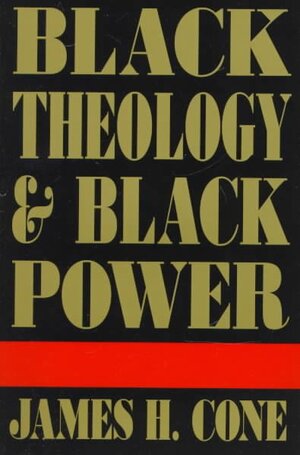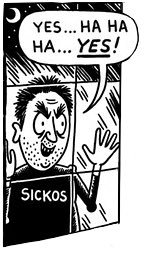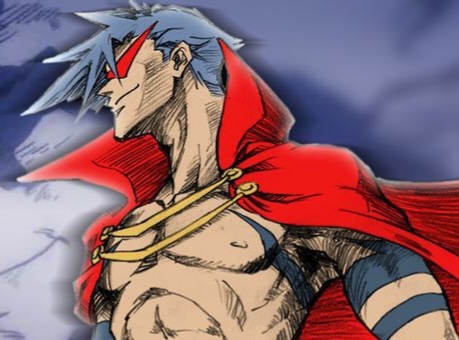The siege of Leningrad by German and Finnish forces (as well as the soldiers of the Division Azul, Spanish volunteers) is a key episode in the Second World War on Soviet territory and saw the reappearance of a form of warfare that was thought to have died out in the nineteenth century. Although less present in narratives of the war in the West, the siege was a major traumatic event for the USSR. As a symbol of resistance and suffering, it differs from Stalingrad, a heroic victory that could be celebrated more easily. Of Leningrad’s 2.5 million inhabitants on the eve of the conflict, only 600,000 were still alive in the city when it was liberated by the Red Army on 27 January 1944, around one million having been evacuated before and during the siege. It is estimated today that 800,000 people died in the siege, mostly from cold and hunger.
Leningrad, along with Moscow and Kiev, was one of the major objectives of the German offensive launched on 21 June 1941, but the city was not taken during the attack. It was gradually surrounded by Finnish forces in the north and by German forces in the south. The capture of Mga, on 29 August 1941, allowed the attackers to control the last railway line linking the city to the rest of the USSR, and the fall of Schlisselburg on the banks of the Neva on 8 September 1941 sealed the fate of the city once and for all. The Germans did not cross the Neva, however, and thus failed to join up with the Finnish, renouncing effective control of Lake Ladoga.
The Soviets tried to loosen the stranglehold on the city in 1941, but did not succeed and suffered heavy losses. The military encirclement was only gradually broken from 1943 onwards: in January the Red Army retook Schlisselburg, which meant it could protect the southern shore of Lake Ladoga more effectively. The “Leningrad-Novogorod” offensive launched on 14 January 1944 finally allowed the blockade to be lifted on 27 January. It had lasted almost 900 days.
Two forms of violence
The bombing of the city was particularly intense during the first weeks of the siege (80 per cent of the air raids took place between September and November 1941), but the summers of 1942 and 1943 were also extremely violent: shells continuously rained down on the city. The shelling of the city by artillery was coupled with a psychological offensive: the Germans dropped thousands of leaflets announcing the defeat of the USSR to the population.
Alongside this mortality inflicted by arms, it was cold and hunger that caused the most casualties among Leningrad’s inhabitants. The supply situation was catastrophic, especially during the first winter (1941-1942). In fact, warehouses were almost empty when the encirclement of the city was completed: the food reserves of the city would have only lasted a matter of days. Dimitri Pavlov, responsible for managing the city’s reserves, was forced to reduce the food ration drastically. In November 1941, each inhabitant received a daily ration of between 125 and 375 g of very poor quality bread, depending on their status. The situation only began to improve very gradually in the summer of 1942.
Soon there was also a shortage of electricity. There were no more city trams so the starving population had to walk to get around. There was no more heating in apartments. The cold was terrible. During the winter of 1941 temperatures regularly reached – 20° C and even dropped to – 40° C. The inhabitants had to burn anything they could find to stay warm, causing numerous fires. They ate whatever they could get hold of. There were rumours of cannibalism; people ate wallpaper paste, boiled leather, cosmetics and pets.
In the sealed-off city, death was everywhere. People collapsed from exhaustion in the street or died at home, like the family of Tanya Savicheva, a little girl who became the symbol of the siege. In her notebook she recorded the death of each member of her family, until only she was left.
Mobilisation and control
Faced with this situation, the Soviets tried to manage the crisis. Despite the risk of bombing, the “road of life” over the frozen Lake Ladoga allowed hundreds of thousands of inhabitants to be evacuated and a minimum of food to be brought into the city. Vast mass graves were dug in the spring to hold the corpses and limit the risk of epidemics.
The authorities also tried to maintain the appearance of normal life: libraries remained open, plays were performed and concerts were held. Dmitri Shostakovich’s 7th symphony, completed in Kuybyshev in March 1942, was played by the Leningrad Philharmonic Orchestra in August that year.
A complex memory
The population of the city held out. After the liberation, this heroic suffering was exalted in a museum and celebrated in the press. Ilya Ehrenburg wrote: “We have an ideal worth pursuing – to live with the same dignity as the heroes of Leningrad, to work as selflessly as they fought.”
The commemoration of this feat wasn’t taken up again until the early 1960s. The mass graves were reorganised and a large memorial cemetery inaugurated. The siege became the heart of local memory, the exalted symbol of the defence of the city and of the Soviet regime. Gradually, however, a more individual memory emerged, focused on the suffering individuals endured. At the end of the 1970s, the publication of the Book of the Siege by Ales Adamovich and Daniil Granin, based on testimonies. The publication of many diaries written during the siege, mainly in the years following perestroika, formed part of the same process.
In today’s Saint Petersburg, the celebration of the 9th of May, the day of victory over fascism, still begins at the Piskaryovskoye Memorial Cemetery with a tribute to the dead of the blockade.
Soviet Storm. WW2 in the East - The Siege Of Leningrad. Episode 5 :t34:
Megathreads and spaces to hang out:
- ❤️ Come listen to music and Watch movies with your fellow Hexbears nerd, in Cy.tube
- 💖 Come talk in the New weekly queer thread
- 🧡 Monthly Neurodiverse Megathread
- 💛 Read about a current topic in the news
- ⭐️ October Movie Nominations ⭐️
reminders:
- 💚 You nerds can join specific comms to see posts about all sorts of topics
- 💙 Hexbear’s algorithm prioritizes struggle sessions over upbears
- 💜 Sorting by new you nerd
- 🌈 If you ever want to make your own megathread, you can go here nerd
- 🐶 Join the unofficial Hexbear-adjacent Mastodon instance toots.matapacos.dog
Links To Resources (Aid and Theory):
Aid:
- 💙Comprehensive list of resources for those in need of an abortion -- reddit link
- 💙Resources for Palestine
Theory:
- ❤️Foundations of Leninism
- ❤️Anarchism and Other Essays
- ❤️Mega upload with theory for many tendencies
Remember nerds, no current struggle session discussion here to the general megathread, i will ban you from the comm and remove your comment, have a good day/night :meow-coffee:
10 days smoke free today. It does feel like the cravings aren't as severe as they were. Even when I think to myself "I should get a ride to the store and buy a carton of smokes" I say no, that it's my money and I need to spend it wisely. So that's a win. Old me wouldn't have given a shit and found any way or excuse to buy smokes. I should buy myself something cool to celebrate.
Damn that is some great news especially in this downer of a mega. Remember, even if you relapse, it doesn't mean you have lost. My grandma took 3 times to quit at least, but she's been without cigarettes for at least 2 decades now.
New Megathread Nerds!!! :USSR:
-
🐶 Join the unofficial Hexbear-adjacent Mastodon instance toots.matapacos.dog
-
🌈 If you ever want to make your own megathread, you can go here nerd
@aaaaaaadjsf @Abraxiel @Acute_Engles @American_Communist22 @AnarchaPrincess @Antilope @Alaskaball @Aliveelectricwire @bbnh69420 @BigLadKarlLiebknecht @buh @CatEars420 @cawsby @CDommunist @Cheesewizzard @Cherufe @ClimateChangeAnxiety @clover @comi @Commander_Data @ComradeCmdrPiggy @ComradeEchidna @context @congressbaseballfan @corgiwithalaptop @crime @Cromalin @CyborgMarx @Dawn_Beveridge @Dirt_Owl @Dolores @Donut @drinkinglakewater @ElChapoDeChapo @ElGosso @el_principito @EmmaGoldman @FidelCashflow @Flinch @flowernet @forcequit @Frogmanfromlake @GalaxyBrain @ghosts @Goadstool @GorbinOutOverHere @GoroAkechi @Grownbravy @GVAGUY3 @HarryLime @hexaflexagonbear @HoChiMaxh @Hohsia @Ho_Chi_Chungus @Ideology @InevitableSwing @iwillavengeyoufather @I_HATE_JOHN_CALVIN @jabrd @JamesConeZone @Kanna @Kaputnik @Koa_lala @kristina @LesbianLiberty @marxisthayaca
@MaxOS @MelaniaTrump @Mindfury @Nakoichi @PaulSmackage @plinky @PM_ME_YOUR_FOUCAULTS @PorkrollPosadist @President_Obama @PurrLure @Ram_The_Manparts @Redcuban1959 @RNAi
@Rojo27 @RoseColoredVoid @solaranus @SorosFootSoldier @Sickos @silent_water @Sphere @Spike @spring_rabbit @ssjmarx @take_five_seconds @TankieTanuki @Teekeeus @Tervell
@TheSpectreOfGay @ThisMachinePostsHog @ultraviolet @UlyssesT @Venustum @viva_la_juche @WhyEssEff @WIIHAPPYFEW @wtypstanaccount04 @wombat @Yanqui_UXO @Zoift @Zuzak@thelastaxolotl @WhoaSlowDownMaurice @Quimby @Lydia
@CARCOSA @liberal @ella @all_that_is_solid @KenBonesWildRide @KiraNerys @TomboyShulk @DuckNuckem @SapGreen @Zangief @scumlord @COMMENT @Antisocial_Socialist @DOPESMOKERDENG
Remember nerds, no current struggle session discussion here on the general megathread, i will ban you from the comm and remove your comment, have a good day/night :meow-coffee:
Reading some history right now. The Siege of Leningrad was absolutely brutal. 2 long years of what was essentially an open-air concentration camp.
Goddamn this is some seriously disturbing stuff. It's not exactly like the Holocaust, but this picture is startlingly similar. Absolute death to America for never teaching me about this.
-
One of my new professors is now my favorite man on the planet. In today's class he brought up Chapos 30 year war podcast, he called Martin Luther the first poster, he played a video of Malcolm X and talked about how cool he was, then played a video of Jordan Peterson crying and shat all over Andrew Tate. He always talks about how capitalism has failed us and how he's lost all hope in western institutions after Obama.
If he posts here I would not be surprised at all.
The average professor is, what, somehwhere between 30-40? That's the core burned out dirtbag commie demographic.
We're watching the emergence of a new type of crazy lefty old guy in real time
No disrespect to my counterpunch / greyzone soc prof, but it was time for something new
Just found out my wife is pregnant with our 2nd child. Genuinely both afraid and excited, especially in light of current circumstances, but veering towards happiness more than anxiety.
I visited Dachau years ago and it was one of the ominous places I have ever been in my entire life. We really owe the Soviets a debt that can never be repaid.
Anyone who loves freedom owes such a debt to the Red Army that it can never be repaid.
—Ernest Hemingway
I really hate how they built up the video of the police killing someone like some kind of media event, with even the president chiming in.
You ever just wanna get swole and join your local independent wrestling circuit as some communist stereotype so boomers will pay you to yell at them about american war crimes in a vfw hall?
Like when sgt slaughter became anti Iraq war for his heel turn and legit almost got murdered
According to Slaughter, Vince asked him to burn the American flag
Very Rare Vince McMahon W
This bitch is on public transit
I love seeing cars in traffic as I whiz past. Losers hahahahahaha
Boyfriend is looking at a really big promotion that will help us a lot. Nervous though cause it would mean moving back to night shift. I don't mind working nights, but job hunting is always scary.
Night shifts can be rough. Wise to stack up on some vitamin D for that sort of thing.
Yeah it's a whole lifestyle. Fortunately a lot of shelters do long shifts, so hopefully I'll be able to work just 3-4 days a week.
It's just finding and securing that position that's scary.
Relating to the siege of Leningrad I recently learned in looking up information on a plot point in the movie The North Star relating to what the nazi doctors were doing to save the lives of nazi invaders, and
CW: Crimes against Humanity, genocide, physician malpractice
Much like how the doctors in the movie were killing children by draining them of their blood and saving the lives of nazi soldiers through blood transfusions, there was a concentration camp just south-west of Leningrad where a mass grave of 1,362 bodies, with 675 of them the bodies of babies and children, was discovered a few years back. It was called the Vyritsa Children's Concentration Camp. It was there that children across the occupied Leningrad region were rounded up and interred there for the purposes of using them as prison labor as well as a "medical resupply center". Here's an excerpt from one woman who survived there.
Nadezhda Gavrilovna Belezekova (she was then four years old) recalled how they "crawled under the fence, from which one could reach the bridge over the Oredezh with one's hand." On the other side of the shore, adults lived and worked. The dogs that were assigned to guard the camp did not bark and did not give out children, as they knew each prisoner well. Already after the war, N.G. Belezekova learned that “a woman who lived in the same barracks with her mother regularly “knocked” on the fugitives”, and that thanks to her “efforts”, Nadezhda once almost died in the punishment cell.
Children were punished in a variety of ways: they were beaten with a whip, deprived of lunch, placed in a punishment cell - a cold and damp basement of an old stone building. From more healthy children, the Nazis periodically took blood for their wounded soldiers and officers. As a rule, these children did not survive later ... Although, fortunately, this fate has passed for many. According to some prisoners, the children were repeatedly taken somewhere, after which they disappeared.
In the evenings, an ambulance came to the camp, ostensibly for “disinfection”. Former prisoner Alexander Roslov recalled : “In Vyritsa, I sat in a bunker (punishment cell) more than once, when I said the wrong thing, ran the wrong way. I cannot say that they took blood in the camp. But my sister Lena Roslova died there, in the infirmary. She said: “Sasha, take me out of here. I don't even have blood anymore, but they take everything. She was gone the next day."
The more I read from the pages of history, the deeper my belief that fascism must be opposed at all costs. Nothing short of the total extermination of fascism must be acceptable.
Truly, they were the most evil demons to walk planet Earth. The fact that they weren't all destroyed and burned away after WWII is a great and resounding shame.
@wtypstanaccount04 Since you mentioned you were reading about some of the history around that period you might find this interesting, if hard to go through.
Absolutely correct. The Nazis to me seem like not just fascists, but exceptionally evil fascists that make other fascists look good by comparison. Am I right about that or just missing out on some other war crimes?
Edit: I think I was forgetting other war crimes.
I think the difference between nazis and the anti-communist axis pact members and other fascists is that other fascists, like Suharto, Salazar, Pinochet, and Franco, is that they didn't wage wars of extermination against "lesser" people outside of their borders but mainly kept to themselves - and all that entails.
The main difference from what I can tell is that the Nazis were unique in their industrial-scale attempts at genocide. I don't think Italy or Japan really made it that far or seemed to be interested in the same things. Japan seemed to be content to "simply" massacre and torture large amounts of Chinese people. There wasn't a plan afaik to outright remove all Chinese people from existence, just to take their land and subjugate them.
I reckon you're right as Nazis and their select reich-puppets were the extreme in their construction of an industrial system of genocide. The Italians were too focused on exterminating their communist movement as their scapegoat and maintaining their colonial holdings, whereas the Japanese were imperialist in the old european sense in how their colonial style of management is genocidal but that's seen as a necessity of empire and not as a goal of empire.
I think the key difference is that, for the Nazis, their choices of scapegoats being a heavily racial infused their development of the ultra-nationalist fascist ideology with racial ultra-supremacy as a lot of the ideology and philosophy of the Nazis stem from the periods of European colonialism and European Imperialism and the supremacy of the science of phrenology at the time to justify the horrors of Empire inflicted upon the rest of the world at the time. That, plus the Jewish Question that was debated across Europe in the interim period between the american civil war and ww1, the success of the Soviet union and the failure of the world revolution in world war 1, and the economic slump, instability, and communist revolution attempts in the early days of post-war germany all came together to make the unique soil for fascism to grow from.
Literal fucking vampires, they were actual monsters
On a similar note, for more information on the atrocities the Nazis committed against their own children in Germany I'd recommend the book Asperger's Children
Truly harrowing shit
I would, as most likely I'd have the time and general motivation in life to do it without the horrors of capitalism looming over me :castro-stuff:
I miss working out. But I'm so fucking tired all the time from working that I haven't been to the gym in months now






















